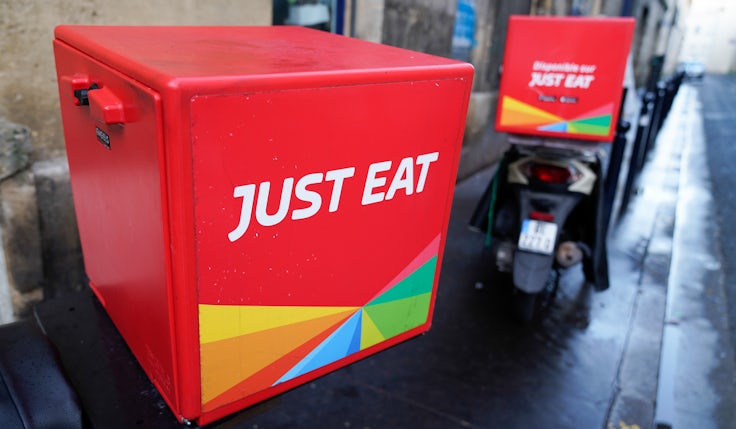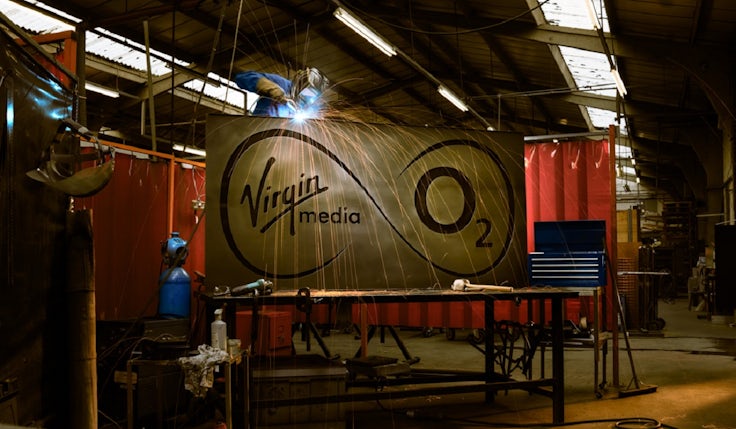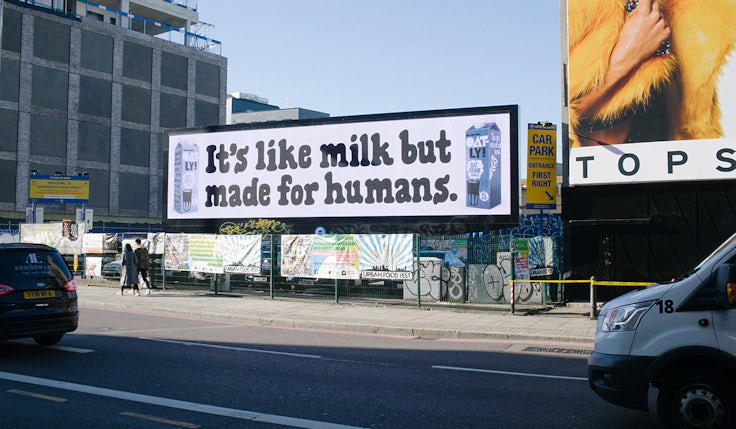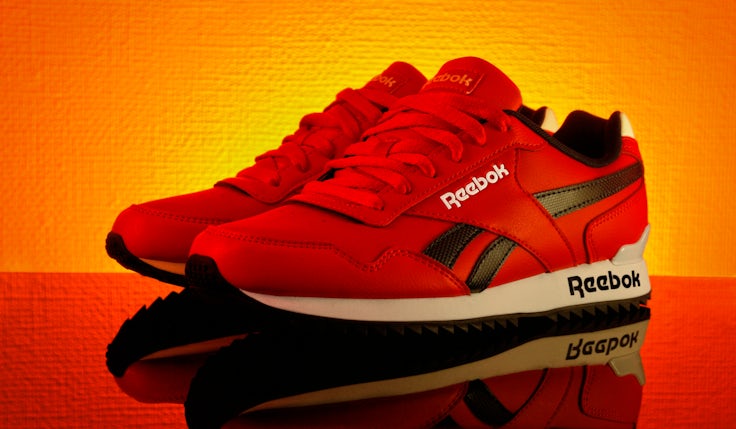Reebok, Adidas, John Lewis: 5 things that mattered this week and why
From the brand implications of Adidas’s sale of Reebok to the £100m investment in financial services being made by high street retailer John Lewis, catch up on this week’s biggest marketing news.
 Reebok’s value plummeted by €1bn under Adidas ownership
Reebok’s value plummeted by €1bn under Adidas ownership
In the 1980s Reebok was the undisputed king of sportswear and despite struggling in the 90s, Adidas thought it saw an opportunity to join forces to take on the rapidly growing Nike, buying the brand for €3.1bn (£2.6bn) in 2006.
But not all companies are well-suited to becoming a house of brands. According to Brand Finance, Reebok had a brand value of €1.7bn (£1.5bn) in 2006 – now the brand is worth just €733m (£626m). As our analysis shows, Reebok’s brand health has also been on the decline over the last decade, with Nike and Adidas far superior on most major measures.
No wonder then that Adidas finally bit the bullet and sold Reebok to Authentic Brands Group (ABG) for €2.1bn (£1.8bn), at a loss of €1bn (£854m).
ABG has been on a roll of snapping up worse-for-wear brands with a long legacy. Reebok will be joining a portfolio which already includes Forever 21, Juicy Couture and Sports Illustrated. Jamie Salter, founder and CEO of Authentic Brands, says it plans to strengthen the Reebok business and maintain its retail outlets.
Writing this week, Marketing Week columnist Mark Ritson called ABG the “perfect beast” to run a house of brands.
“For Adidas, this is a long-awaited chance to do the opposite and focus almost exclusively on its branded house once again,” he concluded.
READ MORE: How much is the Reebok brand worth after being offloaded by Adidas?
Just Eat sees fruits of increased marketing spend
 Earlier this year, Just Eat’s global CMO Susan O’Brien told the Festival of Marketing that top of mind awareness is a metric she monitors daily, as she works to ensure the brand remains relevant in a fiercely competitive sector.
Earlier this year, Just Eat’s global CMO Susan O’Brien told the Festival of Marketing that top of mind awareness is a metric she monitors daily, as she works to ensure the brand remains relevant in a fiercely competitive sector.
So no doubt she’ll be pleased by the progress the company has made over the first half of this year. UK top of mind awareness has increased to approximately 40%, although the market still lags behind others like Germany, where it reaches around 70%.
“Ordering food delivery is typically a very spontaneous decision, so being our customers’ first choice is really important to us,” said chief operating officer Joerg Gerbig on a call with investors this week.
To drive this increased awareness, Just Eat tripled its marketing expenditure over the first six months of the year, from €97m (£83m) over the same period in 2020 to €295m (£252m). In the first half of 2019, before the onset of Covid-19, Just Eat spent €73m (£62m) on marketing.
As a result, the food delivery service has also seen its market share increase in key markets like London, customer loyalty improve and a rise in gross transaction value. Order growth was therefore significant over the period, leading to an 82% year-on-year jump in revenues.
Just Eat also stated that its sponsorship of the Euros 2020 has positioned the brand as a “top-tier sports sponsoring brand”, laying the foundation for future work with UEFA through to 2025.
But despite a successful first half, the competition remains fierce. Just last week Deliveroo reported that it had grown “materially ahead of expectations”, with orders doubling to 148.8 million and revenue up 82%.
READ MORE: Just Eat drives UK growth after tripling marketing investment
John Lewis makes £100m play for the financial services market
 After suffering a pre-tax loss of £517m and closing around a third of its stores in the space of 18 months, John Lewis is on a mission to diversify its business beyond retail.
After suffering a pre-tax loss of £517m and closing around a third of its stores in the space of 18 months, John Lewis is on a mission to diversify its business beyond retail.
The partnership, which wants 40% of profits to come from areas outside retail by 2030, is now focusing on the “exciting opportunity” it sees in financial services.
The push into the investment space, working with digital wealth management brand Nutmeg, is part of a £100m cash injection intended to quadruple its financial services business over the next five years. The investment proposition builds on the introduction last year of a flexible home insurance product and interest free credit service.
Spanning a Junior ISA, stocks and shares ISA, and general investment account, the idea is to offer simple investments to people who would not otherwise get involved. The focus will be on providing investments in businesses which score highly in areas such as carbon emissions, climate change, renewable energy, social impact and ethical practices.
John Lewis believes the “trust and love” consumers have for its brand will make the investment products attractive to the masses. This same mentality has informed the company’s decision to become a landlord, with the partnership set to build 10,000 rental homes over the next decade.
While the shift into investments and property might seem at odds with the retail heritage of the John Lewis brand, realistically the company cannot afford to wait for a high street renaissance. Facing heaving losses and multiple store closures, the business took the decision to suspend its bonus for partners until profits reach £150m “on a sustainable basis”.
The partnership is betting big on the strength of its brand – and the esteem with which it is held by UK customers – to carry the business seamlessly into new revenue streams. Whether John Lewis can mix it with the big financial services players remains to be seen, but with a £100m investment it will certainly give it a go.
READ MORE: John Lewis launches investment products in £100m financial services play
Virgin Media O2 recruits from within in push to become ‘national champion’
 Virgin Media O2 has appointed Simon Groves as director of brand and marketing, after the marketing heads of both companies departed following their £31bn merger.
Virgin Media O2 has appointed Simon Groves as director of brand and marketing, after the marketing heads of both companies departed following their £31bn merger.
Former Virgin Media executive director of brand and marketing Cilesta Van Doorn has moved to outdoor advertising group Global, while former O2 CMO Nina Bibby is yet to confirm her new role.
The merger was agreed by O2 owner Telefonica and Virgin Media owner Liberty Global in 2020 and approved by regulators in May. It is the biggest UK merger for a decade, the largest telecoms deal in British history and will see the cultures of a leading broadband provider and a mobile network operator come together.
As a merged company the group hopes to become a “national champion” that can rival BT. The new company represents 47 million connections across broadband, mobile, TV and home phones. It will now seek to capitalise on new selling and bundling opportunities for both domestic and business customers, with plans to invest in expanding its fibre network to an additional 14 million properties.
“Virgin Media O2 is the product of two iconic brands coming together and we launched with a clear mission to upgrade the UK,” says Groves.
Groves has worked at O2 for more than two decades, most recently as director of brand and marcoms. He has now been tasked with leading the newly-merged company’s brand and marketing activities, including creative and campaigns, customer marketing, media, sponsorship and brand strategy.
The challenge for Groves will be in bringing two marketing cultures together and breeding a culture of success, especially given that while he may have more than 2o years’ experience of O2, he is newcomer to Virgin Media.
READ MORE: Virgin Media O2 promotes from within to lead marketing at merged business
Oatly ramps up marketing spend following IPO success
 Swedish alt-milk brand Oatly has reaffirmed its faith in marketing, ramping up spend to $5.3m (£3.9m) in the three months to 30 June after pulling back on advertising due to Covid.
Swedish alt-milk brand Oatly has reaffirmed its faith in marketing, ramping up spend to $5.3m (£3.9m) in the three months to 30 June after pulling back on advertising due to Covid.
The oat milk giant, which is celebrating the “successful completion” of its IPO in May, has also increased its research and development investment from $1.3m (£950,000) to $4m (£3m). The company is buoyant after experiencing a 53.3% surge in revenue for quarter to 30 June, with gross profit reaching $38.6m (£28m).
Oatly has big expansion plans, having worked with the likes of McDonald’s, KFC, Walmart and convenience store chain 7-Eleven to branch out. CEO Toni Petersson highlights the company’s intention to continue exploring “key partnerships and distribution agreements with prominent customers globally”.
The brand credits its in-house creative team – aka the Oatly Department of Mind Control – with helping the company “outperform” other plant-based dairy players in the UK on measures of emotional connection, sustainability and health credentials, according to consumer insight data.
The in-house creatives were behind the launch in January of Oatly’s first UK TV campaign – ‘Help Dad’ – which sought to flip the parental relationship on its head, contrasting a cohort of reluctant alt-milk drinkers with a younger generation pushing for change. The campaign also represented the brand’s largest UK spend on social, digital and print.
Spurred on by what Petersson describes as its mission to create a more sustainable food system, Oatly is now chasing accelerated revenue growth in the second half of the year. With its marketing investment ramping up, not to mention the increased spend on R&D and general consumer demand for diary alternatives, Oatly appears well-placed to meet its growth targets.
READ MORE: Amazon, ITV, Jägermeister: Everything that matters this morning
 Reebok’s value plummeted by €1bn under Adidas ownership
Reebok’s value plummeted by €1bn under Adidas ownership






Comments